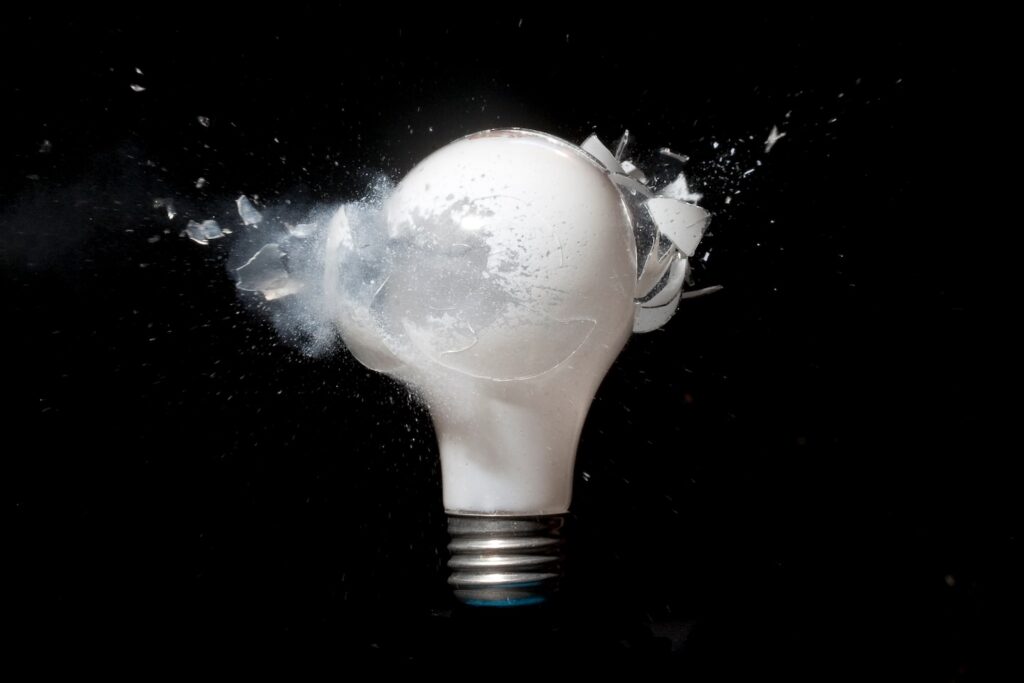Amazon executives are trying to justify their popular but unprofitable Alexa-enabled home devices to their superiors, and the company will soon offer a paid artificial intelligence version of the voice assistant to generate more cash, according to reports from The Wall Street Journal and The Washington Post.
(Amazon founder Jeff Bezos owns The Washington Post.)
In a way, it's comforting that America's powerful big tech companies can flounder for years with unpopular or unprofitable products, or both.
These companies have other hugely successful products, so a few duds won't hurt them, but the struggles of some high-profile products are emblematic of the fact that these companies aren't necessarily listening to what consumers want.
One explanation is that tech geniuses aren't always as genius as we (or they) believe them to be. This background may help explain why the products of big tech companies are sometimes frustrating, like useless Google search results or dirty Instagram accounts.
Should these products exist?
If you were running a lemonade stand with very little sales, you probably wouldn't last eight years.
Last year, the company sold just 5.5 million Pixel smartphones in the United States, about 4% of total smartphone sales in the country, research firm IDC estimates. Apple sold 12 times as many iPhones.
Meanwhile, Nabila Popal, senior research director at IDC, was optimistic, saying, “If we look just at the premium phone category, Pixel sales are strong. The Pixel is popular in Japan. And the Pixel gives Google a platform to show off its latest features, such as AI-powered photo editing, that could eventually be rolled out to other types of phones.”
It's also healthy for your business to have more competition from Apple and Samsung, the two biggest smartphone sellers in the U.S. I own a Pixel phone and I love it.
But by not buying a Pixel, people are sending a strong message that they don't want a Pixel, and Google doesn't seem to be listening.
Google declined to comment.
The same could be said about the Apple TV streaming device and Apple TV Plus.
The five-year-old video service has such a small audience that it doesn't figure in Nielsen's rankings of Americans' TV streaming habits, and research firm eMarketer estimates that Apple TV devices rank well below Google's Chromecast devices when it comes to how Americans connect to streaming services on their TVs.
Apple did not respond to a request for comment.
Even if relatively few people use Apple's entertainment products or buy Pixel phones, there's not much direct harm.
But one question is, what could be missed if companies lose cash and attention to products that aren't used much? (Probably a terrible idea, but instead of an Apple TV, what if they made a printer that people didn't hate?)
Persistence is a virtue, but it's not always the same
Technology executives love to point to examples of their products or ideas that failed for years before turning into spectacular successes.
Decades ago, there were predictions that Amazon would disappear because it was such a terrible business. Meta history is full of features like Instagram and Facebook Stories that people mocked until they started condemning them.
The perseverance of big tech companies to keep trying until they like their product and it becomes financially sustainable can serve you well.
For the past decade, Amazon has poured money into voice-activated home devices like Alexa and Echo speakers, which many people love and use to play music, set timers, check the weather, and entertain their kids.
But much of that enthusiasm isn't translating into shopping on Amazon or other profitable activities for the company, and The Wall Street Journal reports that Amazon's gadgets division is losing billions of yen.
That's one reason why Amazon plans to start selling an improved version of Alexa based on a new form of AI, even though some Amazon employees who worked on the project worry that few people will be willing to pay for it, according to Reuters, The Wall Street Journal and Business Insider.
In a statement, Amazon said it sees the improved Alexa as an opportunity to “provide even more proactive, personal and reliable assistance to the more than 500 million Alexa-enabled devices already in homes around the world.”
The struggles of Apple in entertainment, Google in smartphones and Amazon's Alexa show why some of the big tech companies' products can continue to struggle for years.
Many successful companies and people are convinced that their currently unloved products will eventually become popular and profitable. Maybe they're right, but maybe they just aren't listening to their customers.

